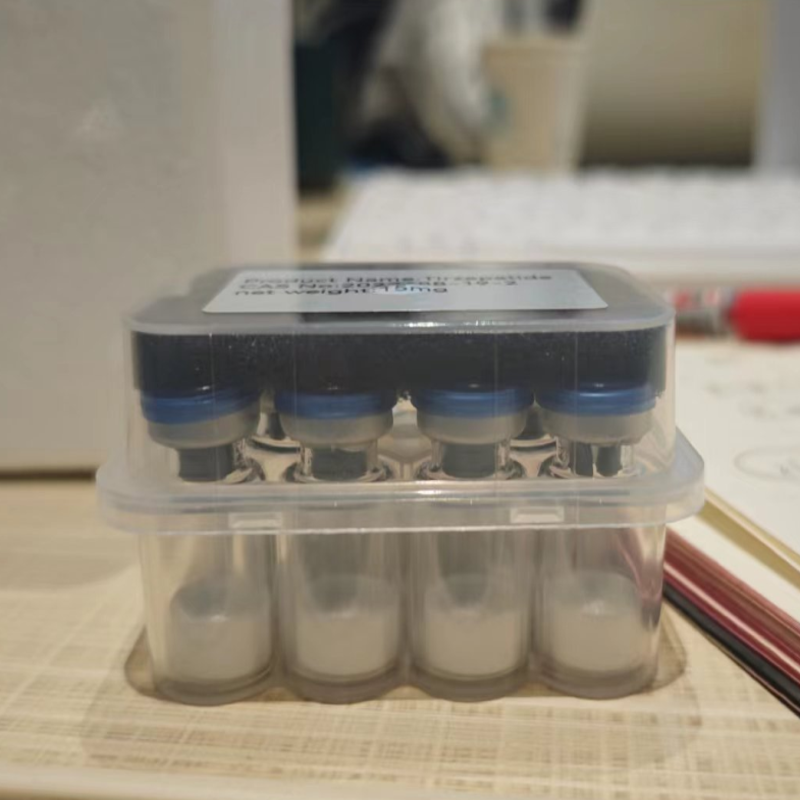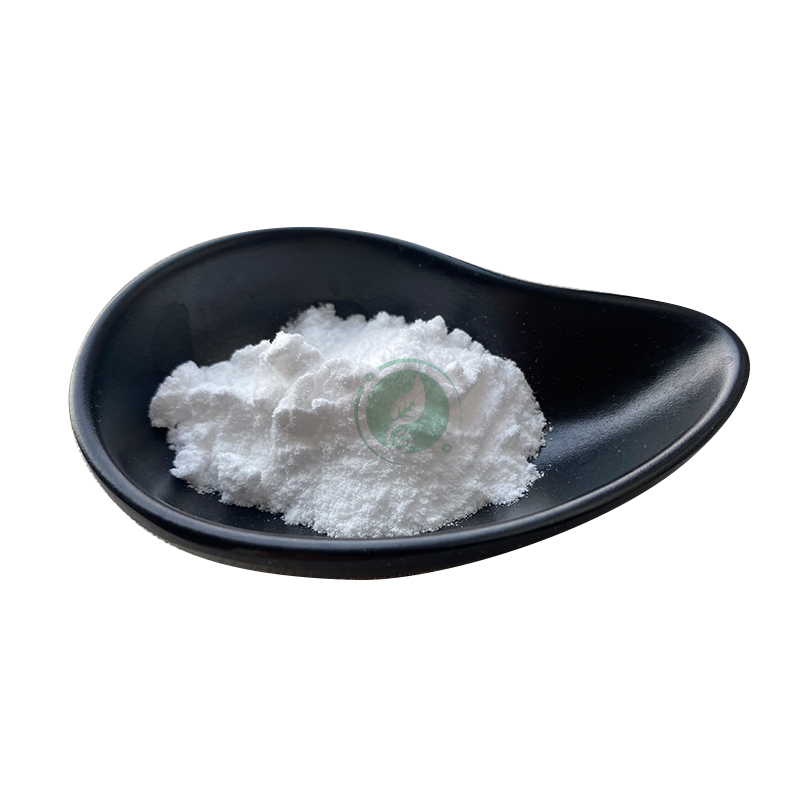The first irreversibly targeted lung cancer drug approved in China
-
Last Update: 2017-03-01
-
Source: Internet
-
Author: User
Search more information of high quality chemicals, good prices and reliable suppliers, visit
www.echemi.com
Shanghai - March 1, 2017, German pharmaceutical giant bringer Ingelheim announced that the company's first non-small cell lung cancer treatment product, giotrif, the world's first and only listed irreversible target drug, has recently obtained the import drug registration certificate issued by the State Food and Drug Administration (CFDA), and has been approved for the use of skin growth in the past Factor receptor (EGFR) tyrosine kinase inhibitor (TKI) therapy, locally advanced or metastatic non-small cell lung cancer (NSCLC) patients with EGFR gene sensitive mutations, and locally advanced or metastatic squamous non-small cell lung cancer (NSCLC) patients with disease progression during or after chemotherapy with platinum As the first generation of irreversible EGFR TKI targeting drug in the world, afatinib can irreversibly combine with EGFR, so as to achieve the purpose of closing the cell signal pathway and inhibiting tumor growth Compared with the first generation and reversible EGFR TKI gefitinib, afatinib reduced the risk of lung cancer progression and treatment failure by 26% After two years of treatment, the number of patients without progression treated by afatinib was twice that treated by gefitinib Compared with the first generation, reversible EGFR TKI erlotinib, afatinib reduced the risk of death and cancer progression by 19% Afatinib's new mechanism of action will extend patients' quality of life, and also bring doctors more accurate and effective treatment options The approval of the new drug will bring new hope to the vast number of lung cancer patients in China, which is of great significance to promote the progress of lung cancer treatment Lung cancer is one of the most common malignant tumors in our country, with an annual increase of 600000 lung cancer patients, which is the leading cause of cancer death In the past, chemotherapy was the main treatment for patients with advanced lung cancer, but with the development of research on lung cancer treatment, it has been found that for patients with a certain gene mutation, targeted treatment will benefit more than chemotherapy In China, about 50% of non-small cell lung cancer patients have EGFR gene mutation positive For these patients, it is the most ideal treatment plan to choose targeted drugs for EGFR Afatinib is a new generation of oral small molecule tyrosine kinase inhibitor (TKI), the first irreversible ErbB family blocker, which can act on the whole ErbB family including EGFR Different from the first generation of reversible EGFR TKI, afatinib can irreversibly combine with EGFR, so as to close the signal pathway of cancer cells and inhibit tumor growth A large number of powerful clinical research data have confirmed the efficacy and safety of afatinib Afatinib's global series of clinical trials has recruited more than 3700 patients, which is the largest global series of clinical trials in the field of lung cancer so far, including more than 700 patients from China The project includes a clinical study designed specifically for Chinese patients Clinical studies have shown that afatinib is the first and only TKI to extend the survival of patients with exon 19 deletion (the most common EGFR mutation type) compared with the best chemotherapy regimen At the same time, compared with the first generation EGFR TKI gefitinib, afatinib reduced the risk of lung cancer progression and treatment failure by 26% After two years of treatment, the number of patients without progression treated by afatinib was twice that treated by gefitinib Head to head studies in patients with lung squamous cell carcinoma after tumor progression or first-line chemotherapy showed that compared with the first generation EGFR TKI erlotinib, afatinib reduced the risk of cancer progression and death by 19%, and significantly improved disease control rate, quality of life and control of cancer symptoms Afatinib has been approved to treat EGFR mutation positive non-small cell lung cancer patients in more than 70 countries, and has become the first choice of EGFR targeted drugs in many countries In addition, the drug was approved by the FDA and the European Union in 2016 to treat patients with advanced lung squamous cell carcinoma undergoing platinum chemotherapy or worsening after chemotherapy In April 2016, afatinib, as an anti-tumor drug with obvious clinical advantages compared with the first generation of EGFR TKI that has been listed in China, was included in the priority approval process by CFDA "As the second generation of EGFR TKI, irreversible targeting drug, afatinib has sufficient clinical evidence to support it as an excellent treatment option, so as to provide significant benefits for lung cancer patients." "We believe that this innovative drug can bring new hope to lung cancer patients in China," said Mr Du Rui, vice president and head of China specialty products business department of bringer ingelham About the main clinical research data of afatinib: lux-lung 3 and lux-lung 6 trials, lux-lung 3 trials (Global trials) and lux lung Six trials (Asian trial, 327 of 364 cases contributed by China, accounting for 89.8% of the total study) were the two largest clinical trials among NSCLC patients with EGFR mutation positive, both of which reached the main end point of progression free survival Afatinib as a first-line treatment, the efficacy is significantly better than platinum based standard chemotherapy In addition, compared with the chemotherapy group, more patients in the alfatinib treatment group showed improvement in lung cancer-related symptoms (cough, shortness of breath, chest pain) and significant improvement in quality of life Results from two independent large-scale clinical trials showed a significant improvement in overall survival at the secondary end point in subgroup patients with the most common EGFR mutation type (del19) Alfatinib is the first and only EGFR targeted drug that has been proved to be the first-line treatment compared with the best chemotherapy regimen to provide total survival benefit for patients with EGFR mutation positive NSCLC Lux-lung 7 trial in lux-lung 7 trial, China contributed 63 of 319 patients, accounting for 19.7% of the total study, and 34.6% of the total Asian patients The results showed that the progression free survival period and treatment failure time of alfatinib in the first-line treatment of EGFR mutation positive advanced non-small cell lung cancer patients were better than that of gefitinib Lux-lung 8 test in lux-lung In the 8 trials, China contributed 67 of 795 patients, accounting for 8.4% of the total study, and 38.9% of the total East Asian patients The results showed that afatinib was superior to erlotinib in terms of progression free survival and total survival compared with erlotinib In addition, afatinib also showed its advantages in quality of life improvement and symptom control of lung cancer 。 In the field of tumor, Brigham & Ingelheim company realized that although it has made great progress in tumor awareness, diagnosis and treatment, there are still significant unmet medical needs in the field of anti-tumor treatment Therefore, it is actively developing targeted drugs At present, it has successfully listed two small molecule targeted drugs for non-small cell lung cancer in the world It is the only pharmaceutical company in the world that has a total survival benefit product portfolio confirmed by the first-line EGFR mutation patients and the second-line squamous cell carcinoma and adenocarcinoma NSCLC patients The irreversible ErbB family blocker afatinib is involved in the field of signal transduction inhibition Afatinib is suitable for the treatment of first-line EGFR mutation positive and second-line squamous cell carcinoma NSCLC Afatini has been approved for listing in more than 70 countries and regions around the world Afatinib has been proved to be superior to gefitinib and erlotinib in clinical trials Phase III clinical trials for head and neck squamous cell carcinoma (HNSCC) have also yielded positive results, and applications for new indications are under way Nidanib is a triple kinase inhibitor, which can block the vascular endothelial growth factor receptor (VEGFR) simultaneously There are more and more scientific evidences about the signal transduction of PDGFR, FGFR, which show that these three kinds of vascular kinase receptors not only play an important role in the process of angiogenesis, but also in the process of tumor growth and metastasis The European Commission has licensed vargatef in 28 EU countries Nidanib combined with docetaxel can be used in adult patients with advanced, metastatic or locally recurrent non-small cell lung cancer (NSCLC) Reference materials: 1 Park K, et al Afatinib versus gefitinib as first line treatment of patients with EGFR mutation positive non small cell lung cancer (Lux lung 7): a phase 2B, open label, random co Co ntrolled trial Lancet Oncol 2016 may; 17(5): 577–589 2. Soriaet al Afatinib versus erlotinib as second-line treatment of patients with advanced squamous cell carcinoma of the lung (LUX-Lung 8): an open-label randomised co ntrolled phase 3 trial The Lancet o ncology 2015; Aug;16(8):897-907 3. Mutations Lecia V Sequist, James Chih-Hsin Yang, et al Phase III Study of Afatinib or Cisplatin Plus Pemetrexed in Patients With me tastatic Lung Adenocarcinoma With EGFR J Clin o ncol 31:3327-3334 4. Wu YL, et al Afatinib versus cisplatin plus gemcitabine for first-line treatment of Asian patients with advanced non-small-cell lung cancer harbouring EGFR mutations (LUX-Lung 6): an open-label, randomised phase 3 trial Lancet Oncol 2014 Feb;15(2):213-22. 5. Geater SL, et al Symptom and Quality of Life Improvement in LUX-Lung 6: An Open-Label Phase III Study of Afatinib Versus Cisplatin/Gemcitabine in Asian Patients With EGFR Mutation-Positive Advanced Non-small-cell Lung Cancer J Thorac Oncol 2015 Jun;10(6):883-9 6. WHO data 2012 7. Tsao AS et al J Thorac Oncol 2016 May;11(5):613-38
This article is an English version of an article which is originally in the Chinese language on echemi.com and is provided for information purposes only.
This website makes no representation or warranty of any kind, either expressed or implied, as to the accuracy, completeness ownership or reliability of
the article or any translations thereof. If you have any concerns or complaints relating to the article, please send an email, providing a detailed
description of the concern or complaint, to
service@echemi.com. A staff member will contact you within 5 working days. Once verified, infringing content
will be removed immediately.







